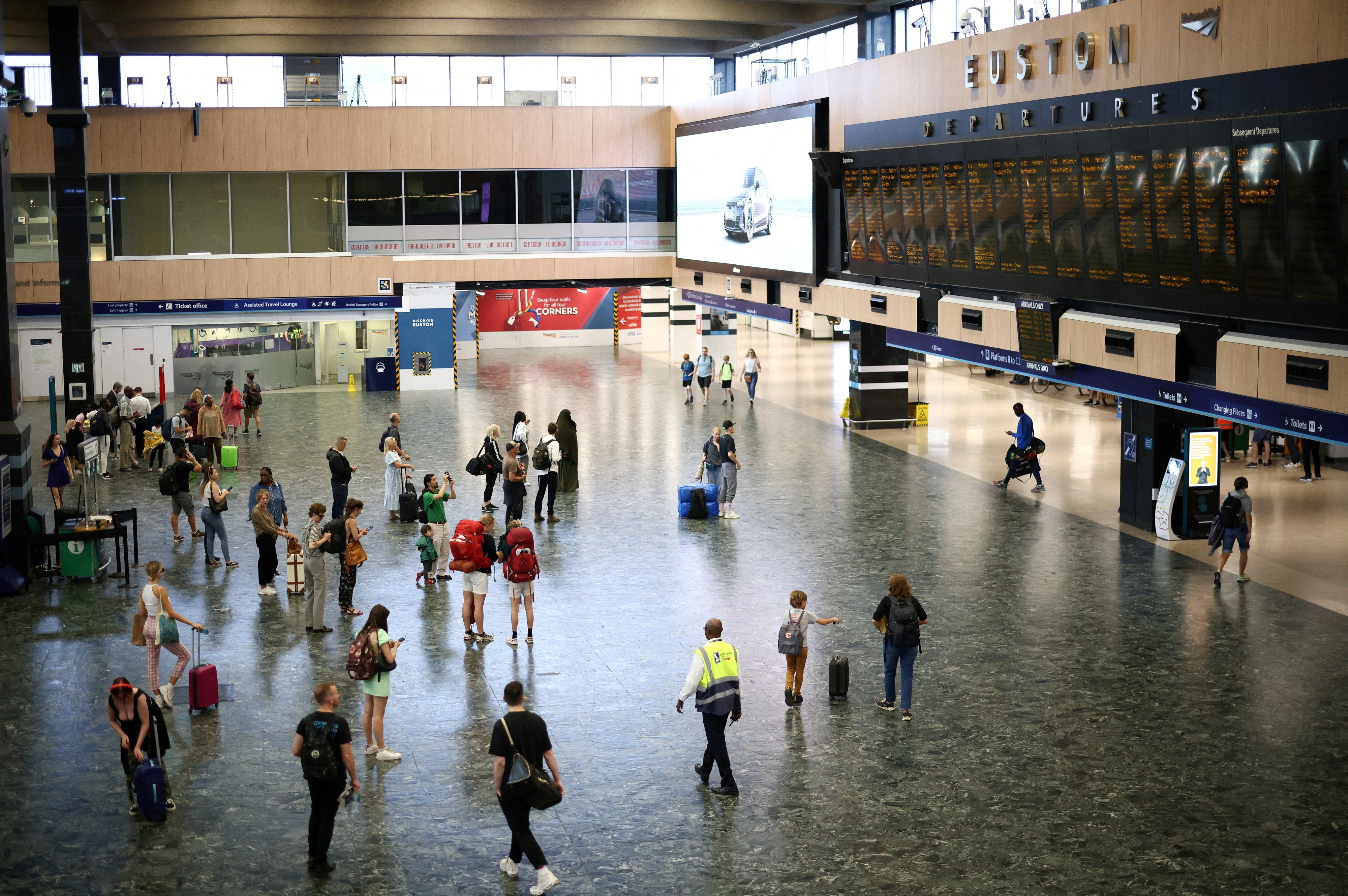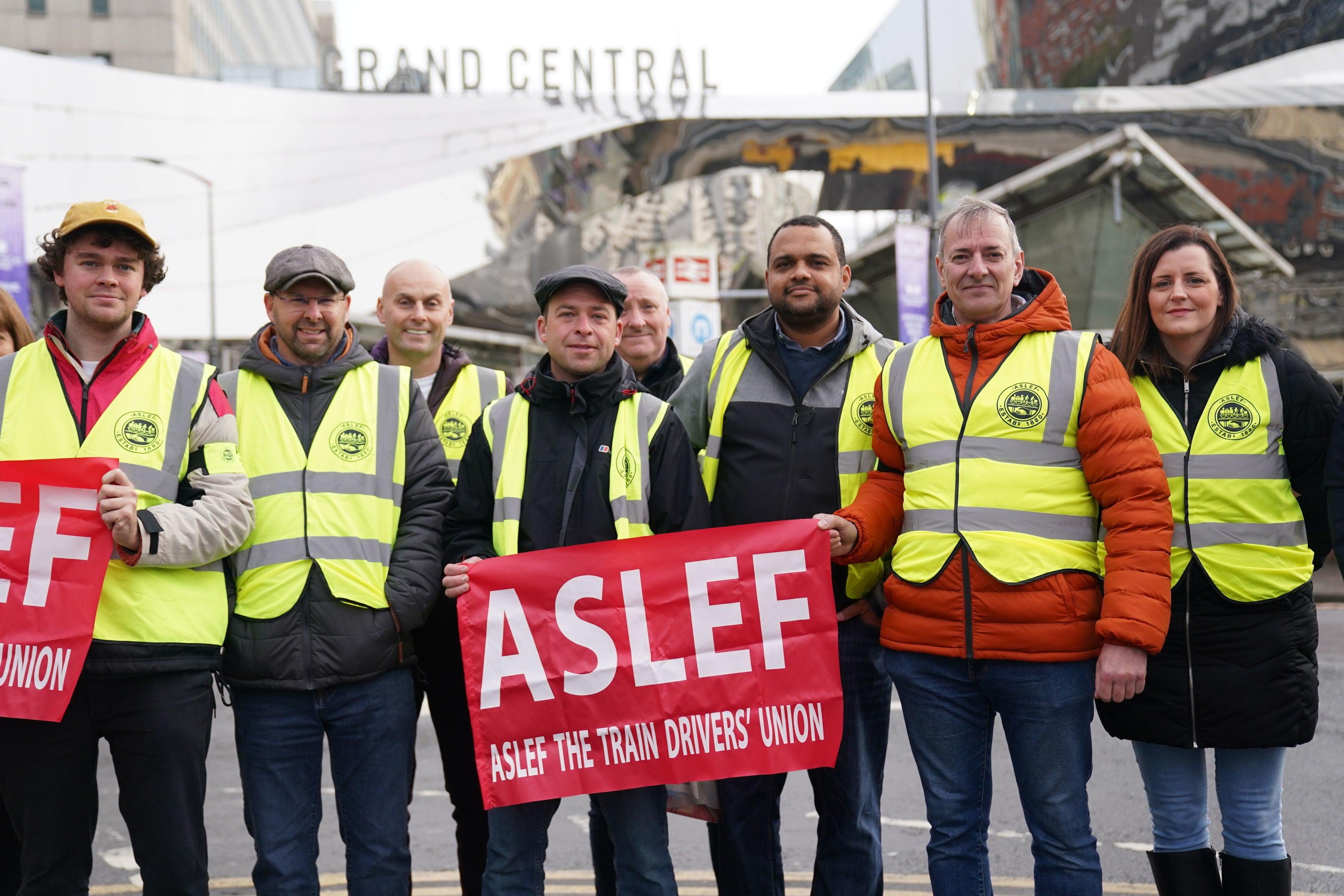More train strikes as union announces December walkouts
‘Further strike action is likely if the current impasse in negotiations continues’, TSSA have said
Your support helps us to tell the story
From reproductive rights to climate change to Big Tech, The Independent is on the ground when the story is developing. Whether it's investigating the financials of Elon Musk's pro-Trump PAC or producing our latest documentary, 'The A Word', which shines a light on the American women fighting for reproductive rights, we know how important it is to parse out the facts from the messaging.
At such a critical moment in US history, we need reporters on the ground. Your donation allows us to keep sending journalists to speak to both sides of the story.
The Independent is trusted by Americans across the entire political spectrum. And unlike many other quality news outlets, we choose not to lock Americans out of our reporting and analysis with paywalls. We believe quality journalism should be available to everyone, paid for by those who can afford it.
Your support makes all the difference.As the dialogue between rail unions, the employers and the Department for Transport becomes increasingly acrimonious, a wide range of industrial action has been announced by white-collar staff.
The Transport Salaried Staffs’ Association (TSSA) has called both stoppages and action short of a strike across Network Rail and a dozen train operating companies.
The action is over pay, job security and conditions.
A walk-out by staff at Avanti West Coast has been called to coincide with the already announced stoppages by members of the RMT union. They will strike in two 48-hour blocks: 13-14 and 16-17 December.
The TSSA says the staff involved work “in a range of operational, station, revenue, on-board and management roles”.
The stoppages on Avanti West Coast will follow on immediately after a 48-hour RMT strike on Sunday 11 and Monday 12 December.
Staff on c2c, which runs between the City of London and south Essex, will walk out on 17 December – coinciding with the final day of RMT national action before Christmas.
The action short of a strike begins on 13 December. It involves members working for Network Rail and 11 train operators carrying out “only contractually required duties”. The union says: “TSSA members will not cover the duties of other rail workers who may be involved in strike action.”
The operators involved are Cross Country, East Midlands Railway, Greater Anglia, Great Western Railway, GTR, LNER, Northern, Southeastern, South Western Railway, TransPennine Express and West Midlands Trains.

It will run from 13 December “until the end of current ballot mandates”, most of which end in January.
The TSSA remains in talks with Network Rail, but talks with the Rail Delivery Group (RDG), acting on behalf of train operators, broke down on Tuesday. The union says “the RDG revealed it has no authority to discuss pay and grading”.
The organising director for the TSSA, Luke Chester, said:“We have decided to push ahead with further industrial action because it’s vital that the train companies and the government understand that our demands are not going away.
“Our union has spent the past three weeks in talks and though some progress has been made it remains the case that ministers are just not willing to open up space for a negotiated settlement.
“Given that talks with the RDG have now broken down we have no option but to continue with our industrial action.
“We remain available for further serious talks aimed at resolving the dispute, but further strike action is likely if the current impasse in negotiations continues.”

A spokesperson for the Rail Delivery Group said: “We urge the TSSA leadership to stay at the negotiating table so we can build on recent progress and end a dispute that is harming passengers and businesses, the industry, and their members.”
On Tuesday the transport secretary, Mark Harper, wrote to the RMT saying: “Disruption pushes more and more people away from using the railways, some of whom will never come back.
“My role is to facilitate and support – not negotiate.
“I want to work with you and employers in good faith to help resolve these long-standing issues, and help the employers and you reach a resolution that is fair to all.”




Join our commenting forum
Join thought-provoking conversations, follow other Independent readers and see their replies
Comments